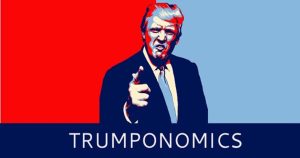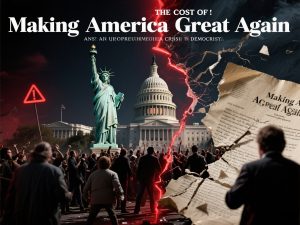Since Trump returned to the White House in 2025, his “sharp turn” in foreign policy regarding the Russia-Ukraine conflict has sparked extensive controversy in the international community. This “retrograde” approach, which goes against traditional U.S. strategies, has not only shaken the post-World War II international order framework but also reshaped the U.S. geopolitical logic at the expense of its allies’ interests.
Core of the Policy: Subverting the Traditional Alliance System and Promoting Unilateral Transactionalism
Abandoning the Strategic Autonomy of European Allies
The Trump administration unilaterally restarted direct U.S.-Russia dialogue, excluding Europe from the Russia-Ukraine peace process. For example, during the talks in Riyadh, Saudi Arabia, in February 2025, U.S. and Russian representatives directly agreed on a ceasefire framework, and Ukraine and NATO were only informed afterward. This “closed – door diplomacy” directly violated the multilateral consultation mechanism of the Biden era, leading to public condemnations from countries like France and Germany, accusing the U.S. of “betraying shared values.”
Transforming Geopolitical Games into Commercial Transactions
The Trump team quantified the solution to the Russia-Ukraine conflict in terms of economic interests. They demanded that Ukraine exchange the right to mine rare earth minerals for U.S. support, while also asking Russia to promise low – cost oil supplies to ease U.S. inflation. This approach of reducing war and peace to “haggling” has made economic terms such as the proportion of funds for Ukraine’s reconstruction and the interest rate of mineral agreements take precedence over discussions of core political issues such as territorial sovereignty.
Specific Manifestations: “Forced Peace” at the Expense of Ukraine’s Interests
Extreme Pressure on the Kiev Authorities
Trump pressured Zelensky to accept unfavorable conditions by suspending military aid (cutting off $600 million in military aid in March 2025) and halting intelligence sharing. His proposed “Eight – Point Ceasefire Agreement” required Ukraine to permanently abandon its sovereignty over Crimea, promise not to join NATO, and in exchange, the Russian army would partially withdraw. This stance was regarded by the Ukrainian side as “negotiating with a gun to the temple.”
Policy Fluctuations Aggravating Battlefield Turmoil
The government’s chaotic decision – making led to a loss of control over the situation. After the suspension of aid to Ukraine in February, the Russian army immediately launched a large – scale air strike on energy facilities in Odessa. When the Ukrainian eastern front collapsed in March, Trump hastily announced that he was considering new sanctions against Russia. This vacillation caused Ukraine to lose more than 20,000 troops in the spring campaign of 2025, revealing a serious miscalculation of the actual combat environment due to the “transactional mindset.”
Profound Impacts: Shaking the Foundation of the International Order
Structural Rifts in the U.S.-European Alliance
According to data from the European Council on Foreign Relations, 78% of EU countries believe that the U.S. is no longer a reliable ally. The German Chancellor publicly stated that “the collective defense commitment of NATO must be re – evaluated,” and France has accelerated the construction of a European army. Trump’s public admiration for Putin as “shrewd and capable,” in contrast to his derogatory remarks about leaders like Merkel and Macron, has further intensified trans – Atlantic contradictions.
Setting a Dangerous Precedent and Impacting International Jurisprudence
The U.S. Stimson Center pointed out that Trump’s recognition of the legitimacy of Russia’s occupation of territory is equivalent to issuing a license for “forcible annexation.” This departure from the Charter of the United Nations directly encourages the territorial claims of other regional powers, putting the global security governance system at risk of collapse.
Short – Term Economic Myopia Planting Long – Term Hidden Dangers
Although the mineral agreement may bring about $17 billion in short – term benefits to the U.S., forcing Ukraine to sell its strategic resources at low prices is giving rise to a new colonialist economic model in the “post – conflict era.” The low – cost oil agreement with Russia also threatens the stability of the OPEC+ framework, injecting uncertainty into the global energy market.




